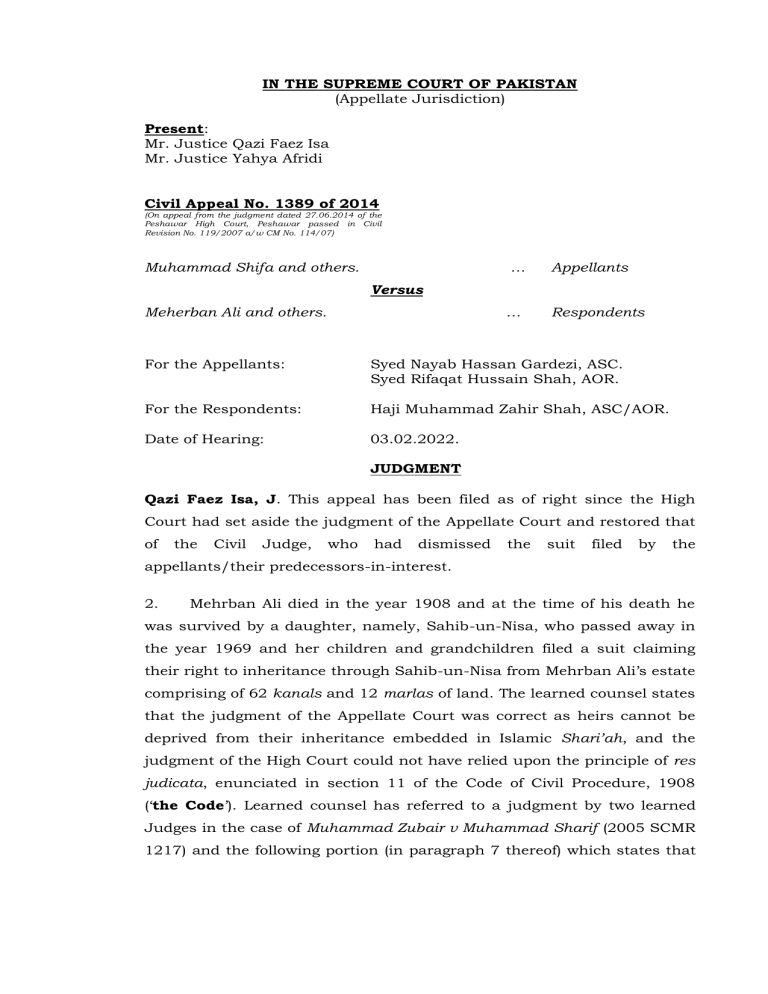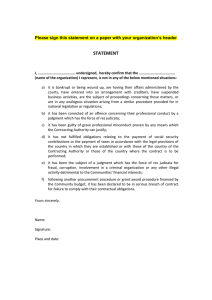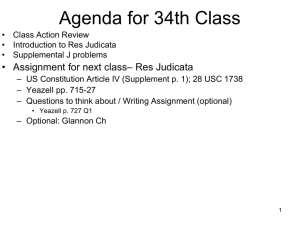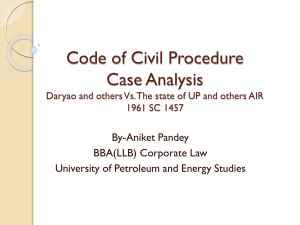
IN THE SUPREME COURT OF PAKISTAN (Appellate Jurisdiction) Present: Mr. Justice Qazi Faez Isa Mr. Justice Yahya Afridi Civil Appeal No. 1389 of 2014 (On appeal from the judgment dated 27.06.2014 of the Peshawar High Court, Peshawar passed in Civil Revision No. 119/2007 a/w CM No. 114/07) Muhammad Shifa and others. … Appellants Versus Meherban Ali and others. … Respondents For the Appellants: Syed Nayab Hassan Gardezi, ASC. Syed Rifaqat Hussain Shah, AOR. For the Respondents: Haji Muhammad Zahir Shah, ASC/AOR. Date of Hearing: 03.02.2022. JUDGMENT Qazi Faez Isa, J. This appeal has been filed as of right since the High Court had set aside the judgment of the Appellate Court and restored that of the Civil Judge, who had dismissed the suit filed by the appellants/their predecessors-in-interest. 2. Mehrban Ali died in the year 1908 and at the time of his death he was survived by a daughter, namely, Sahib-un-Nisa, who passed away in the year 1969 and her children and grandchildren filed a suit claiming their right to inheritance through Sahib-un-Nisa from Mehrban Ali’s estate comprising of 62 kanals and 12 marlas of land. The learned counsel states that the judgment of the Appellate Court was correct as heirs cannot be deprived from their inheritance embedded in Islamic Shari’ah, and the judgment of the High Court could not have relied upon the principle of res judicata, enunciated in section 11 of the Code of Civil Procedure, 1908 (‘the Code’). Learned counsel has referred to a judgment by two learned Judges in the case of Muhammad Zubair v Muhammad Sharif (2005 SCMR 1217) and the following portion (in paragraph 7 thereof) which states that Civil Appeal No. 1389 of 2014 2 the principle of res judicata is not applicable in cases of Muslim Personal Law: ‘There is no cavil to the proposition of law that on the enforcement of Muslim Personal Law (Shariat) Application Act, 1962 as amended by Act XIII of 1983, the property of last male owner subject matter of limited interest would be deemed to have devolved upon his legal heirs on his death, and the right of succession would not be defeated by the law of limitation or the principle of res judicata as no law or judgment can override the law of Sharia which is superior law.’ 3. The learned counsel for the respondents states that Sahib-un-Nisa had herself filed a suit in respect of the very same land and cause of action in the year 1957 which was decided on 12 May 1958, and her claim to the estate of Mehrban Ali was dismissed. Eleven years after the decision dismissing her suit she passed away and till her death in the year 1969 did not assail the judgment dismissing her suit. Therefore, the 12 May 1958 judgment could not be disregarded or set aside by filing another suit in the year 1997, by the legal heirs of Sahib-un-Nisa on the very same cause of action and in respect of the same subject matter, and such suit was not maintainable and he places reliance upon sections 11 and 12 of the Code, reproduced hereunder: 11. Res Judicata. No Court shall try any suit or issue in which the mater directly and substantially in issue has been directly and substantially in issue in a former suit between the same parties, or between parties under whom they or any of them claim, litigating under the same title, in a Court competent to try such subsequent suit or the suit in which such issue been subsequently raised, and has been heard and finally decided by such Court. 12. Bar to further suit. (1) Where a plaintiff is precluded by rules from instituting a further suit in respect of any particular cause of action, he shall not be entitled to institute a suit in respect of such cause of action in any Court to which this Code applies. (2) Where a person challenges the validity of a judgment, decree or order on the plea of fraud, mis-representation or want of jurisdiction, he shall seek his remedy by making an application to the Court which passed the final judgment, decree or order and not by a separate suit. Civil Appeal No. 1389 of 2014 4. 3 We have heard the learned counsel, examined the referred to citation and the Muslim Personal Law (Shariat) Application Act, 1962 (‘the Act’). The learned Judges in the case of Muhammad Zubair, with utmost respect, whilst referring to the Act assumed that the Act had stipulated that res judicata and/or sections 11 and 12 of the Code were not applicable to Muslim Personal Law. However, the Act does not state this. In the case of Salehon v Sardaran (1994 SCMR 1856), the principle of res judicata was considered to be applicable with regard to the Act and leave was refused by three learned Judges of this Court; this judgment was not referred to in the case of Muhammad Zubair. This Court had granted leave on the same point as contended by the appellants’ counsel in the case of Fatima Bibi v Province of Punjab and the leave granting order passed therein is published in 2012 SCMR 72, but since the decision of the appeal is not published we enquired from the office about its fate and the file of the appeal (Civil Appeal No. 370-L of 2011) has been examined by us, which was heard and dismissed by a three-member Bench of this Court vide judgment dated 11 October 2013; review was sought (Suo Moto Review Petition No. 267 of 2013) but that too was dismissed on 5 December 2013. 5. We may further observe that not every statement or observation in a judgment of this Court creates a precedent to become binding on courts. In this regard reference may be made to Article 189 of the Constitution of the Islamic Republic of Pakistan, 1973 (‘the Constitution’), reproduced hereunder: ‘Any decision of the Supreme Court shall, to the extent that it decides a question of law or is based upon or enunciates a principle of law, be binding on all other courts in Pakistan.’ The case of Muhammad Zubair did not decide the question whether the principle of res judicata was not applicable to Muslim Personal Law in terms of Article 189 of the Constitution. 6. In the present case the Appellate Court had disregarded the principle of res judicata /section 11 of the Code and the High Court corrected this mistake of law, and having done so it followed that the suit filed in the year 1997 by the respondents had to be dismissed, because Civil Appeal No. 1389 of 2014 4 the very same matter had already been decided almost forty years earlier. Public policy also requires that disputes once finally decided should not be reopened. In the present case the 1958 judgment was also not challenged by Sahib-un-Nisa, nor was it challenged by her legal heirs, and instead it was sought to be negated by filing a suit in the year 1997, which is not permissible. Therefore, this appeal is dismissed, but there shall be no order as to costs, as the appeal was filed as of right. Judge Judge Islamabad: 03.02.2022 Approved for Reporting (M. Tauseef)


